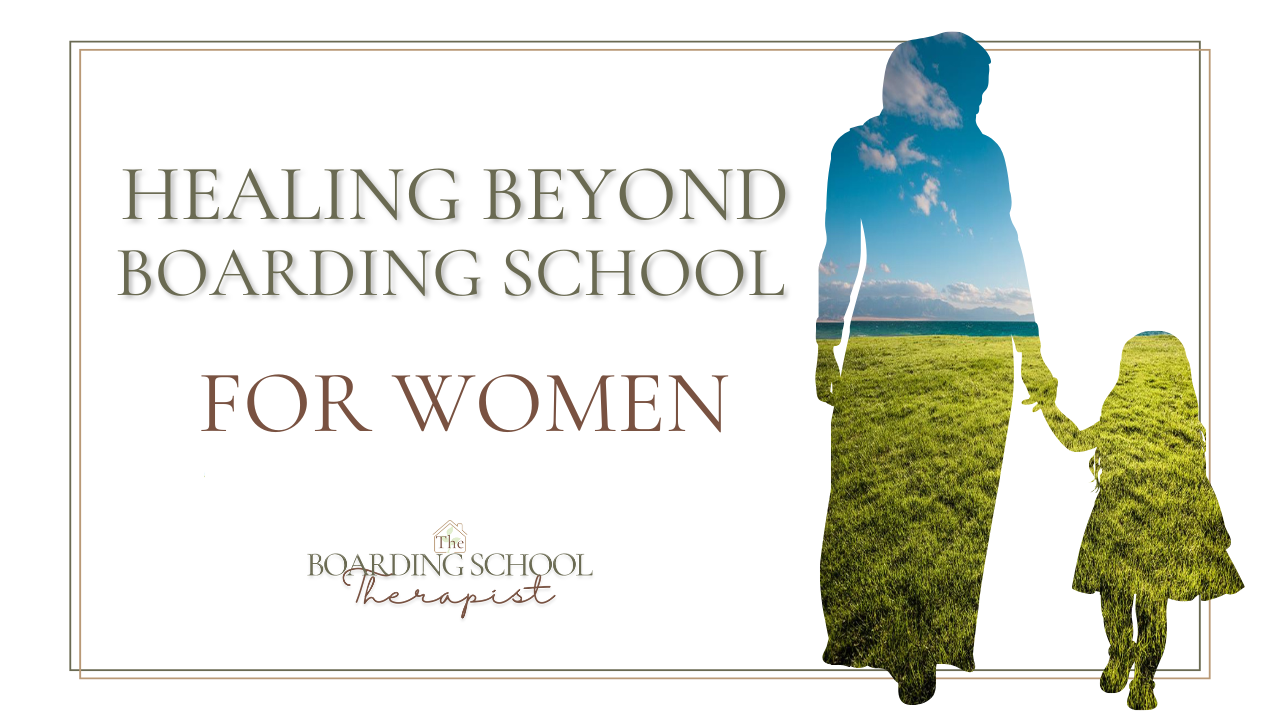Why open Pandora's box and look at the impact of Boarding School?
Jun 20, 2024
I hear this often. Sometimes clients come with trepidation, aware that Boarding School was very traumatic for them. Others come saying, “I had a great time.” “I made amazing friends who are like my family.” “I had such great opportunities.” “I was really happy.”
I’m sure I said all those things myself at one time. There is often a perception that those who seek therapy for Boarding School Trauma must only have been the ones who were bullied or abused. Who were homesick. Who felt abandoned.
Unfortunately many children experienced horrific abuse and violence within the schools, which is finally starting to be spoken about and certain schools and people being brought to justice.
However, Boarding School has an impact on all of those who were sent away and many of the costs remain hidden so although you may be experiencing them, you may not relate them to your boarding school experience.
Spending my informative years in an institution meant that I didn’t learn how to regulate my emotions and did so with an eating disorder.
I developed a personality that on the surface was incredibly confident and happy go-lucky, but underneath was full of low self-esteem and self-worth.
My way of ensuring my popularity and safety at school was becoming everyone’s shoulder to cry on. Girlfriends would come and go for the boys, but by becoming their confident and friend it meant that I wasn’t abandoned.
After school, attaching and maintaining my friendships from school was a priority above my intimate relationships. Always keeping one foot out of relationships and getting my emotional needs met through my friendships. The lesson I learnt from a young age was that you couldn’t depend on your primary attachment figures in the way you could on your friends. They leave you.
When I started to explore more deeply how my own boarding school experience may have shaped my patterns of behaviour as an adult, everything fell into place. I felt validated in my feelings and my way of being. I wasn’t just abnormal. There was a reason why I prioritised these friendships and why I would run myself into the ground with exhaustion rather than ask for help. There was a reason why I felt more at ease in my body when abroad rather than in the UK and constantly felt like a bit of a misfit.
I understood why I disliked groups and I no longer feel shame about that. It is harder to participate in groups as my nervous system goes into a hypervigilant mode, as it did when I was at school sleeping in a dormitory with 30 others. It makes sense. I don’t feel at ease.
I was able to recognise that there is a part of me that struggles to be in company 24 hours a day. With whoever that is. Even my children. I understand that spending my informative years without any privacy has meant that I find it incredibly hard to relax fully in the company of others. There is always a part of me that is switched on. Only on my own, can my nervous system properly let go and I often seek solitude to recharge.
I show signs of having Complex PTSD and know that certain events may trigger that and by explaining this to my partner and my children, we all know how to manage this better. I can therefore turn towards myself with compassion rather than shame and confusion. Often this is to do with abandonment and by knowing this, we put things in place that enable our relationships to continue to thrive, rather than projecting my previous childhood experiences of abandonment onto them.
I understand why I felt so ignorant when my daughters became teenage girls as to how to support them with their transition into young women. Growing up in a boarding school wearing a uniform they wore in the 15th Century is no preparation for how to support them as they explore their own gender, especially when a strong sense of misogyny was instilled in me from the patriarchal school I attended. Alongside them, I revisited that developmental stage that I missed out on myself aged 13. I remember standing in MAC with my daughter and her friends, tentatively trying on lipstick. I felt so out of place. It still doesn’t come easily to me…. But I’m learning. And I understand why….
I have grieved fully, and I understand why my family is not as close as other families. How boarding school created a distance between myself, my brother, and my mother. We did not grow up alongside one another. A formality of relationship ensued, and I quickly learned to turn to friends rather that family for support. I really denied the idea that blood is thicker than water for years. I have shared my learnings with my family and although not well received or understood at first, we all now acknowledge this impact and feel the sadness that being sent away to school has had on our family system.
My mum called me up last night to tell me she was watching a programme on a journalist called Bernard Levin. She said they were describing how he had never married and struggled with relationships and as she listened, she said, “I just knew that he was an ex-boarder.” Her own mother and her two husbands were ex-boarders. She was correct. Once you recognise the symptoms, you start developing a radar.
The understanding and awareness that comes with this knowledge, helps lift the shame about your difficulties and ways of being, and you can make conscious decisions about your choices in life. When that trunk has stayed firmly locked for so many years, it is not a quick easy journey, but it is worth it. For you, your family, and the generations beneath you.



